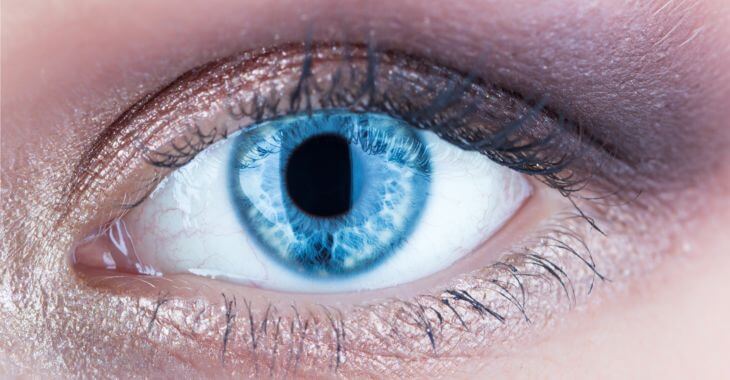Why Do I Have Sudden Black Spots in Vision, Not Floaters?

Experiencing sudden black spots in your vision can be alarming, especially when they’re not the usual floaters that drift across your field of view. If you notice a sudden large black spot in your vision or dark patches that appear, it could indicate a more serious issue than typical age-related floaters.
Unlike floaters, which tend to move as your eyes shift and are more noticeable against bright backgrounds, sudden black spots in vision, not floaters, may signal retinal problems, blood vessel issues, or other ocular conditions requiring immediate attention.
Understanding the Difference: Floaters vs. Sudden Black Spots
Floaters are small specks or cobweb-like shapes that drift through your visual field. They’re common and typically caused by age-related changes in the vitreous gel inside the eye. In contrast, sudden black spots in vision, not floaters, often appear suddenly and may not move with eye motion. These spots can suggest damage or stress to the retina, optic nerve, or blood supply to the eye.
Possible Causes of Sudden Black Spots in Vision (Not Floaters)
Sudden dark spots in vision may be linked to several potentially serious causes. Here are the most common:
Retinal Detachment or Tear
One of the most urgent causes of sudden dark spots is a retinal tear or detachment. The retina can separate from the back of the eye, causing sudden visual disturbances, including black spots, flashes, or shadowed areas. This is a medical emergency.
Vitreous Hemorrhage
Bleeding into the vitreous (the gel-like fluid inside the eye) can occur due to trauma, diabetic eye disease, or retinal tears. It often results in dark spots, blotches, or clouded vision.
Retinal Vein Occlusion (RVO)
When blood flow from the retina is blocked, it may cause swelling, leakage, and vision loss. A sudden large black spot in vision may be an early sign of this condition.
Macular Hole
A tear in the macula, the central part of the retina responsible for sharp vision, can create a dark or black spot in the center of your vision.
Ocular Migraine (Retinal Migraine)
Some migraines cause visual aura or black spots in one eye. These typically resolve within 20 to 30 minutes but may be a sign of other vascular issues.
Optic Neuritis or Inflammation
Inflammation of the optic nerve, often related to conditions like multiple sclerosis, can cause sudden vision changes, including black spots.
Diabetic Retinopathy
People with diabetes may develop retinal damage that leads to vision disturbances, including black spots or blind areas.
Facts About Eye Conditions That Cause Black Spots in Vision
These conditions vary in severity, but all require evaluation by an eye care professional, especially if symptoms appear suddenly or worsen quickly.
- Retinal detachment affects about 1 in 10,000 people per year, but is more common after age 50 or following eye trauma.
- Vitreous hemorrhage is present in up to 60% of eyes with retinal tears.
- According to the CDC, diabetic retinopathy is the leading cause of blindness in U.S. adults aged 20–74.
- Ocular migraines affect approximately 1 in 200 people and are often underdiagnosed.
Sudden Black Spots in Vision Not Floaters Treatment
The treatment for sudden black spots in vision, not floaters, depends entirely on the cause. Here’s what that may look like:
- Retinal tears or detachment may require laser therapy or surgery to reattach the retina and prevent permanent vision loss.
- Vitreous hemorrhage treatment may include laser procedures or vitrectomy (surgical removal of the vitreous gel).
- Macular holes are often treated with vitrectomy and a gas bubble placed in the eye to help the hole close.
- Retinal vein occlusion may require anti-VEGF injections, laser therapy, or steroids to manage swelling and restore vision.
- Ocular migraines typically don’t need treatment but should be monitored to rule out underlying vascular problems.
- Optic neuritis might be treated with corticosteroids or further neurological evaluation, especially if linked to autoimmune conditions.
Early diagnosis improves the chance of preserving vision. Never ignore sudden changes in your eyesight—even if the symptoms seem minor.
When to See an Eye Doctor
If you experience any of the following, you should see an eye doctor immediately:
- A sudden large black spot in vision that doesn’t move
- Flashes of light, especially in peripheral vision
- Loss of part of your visual field
- Black spots or shadows that increase in size or number
- Eye pain, headache, or neurological symptoms with vision changes
Delaying treatment can result in permanent vision loss, particularly with conditions like retinal detachment or severe retinal vein occlusion.

Don’t Wait — Protect Your Vision
Sudden vision changes are never something to ignore. If you’re seeing sudden black spots in vision not floaters, it’s critical to get a full eye exam as soon as possible. Early treatment could make the difference between full recovery and lasting damage. Contact an eye care professional or ophthalmologist immediately for diagnosis and the right sudden black spots in vision not floaters treatment.
The information provided on this website, including text, graphics, images, and other materials, is intended solely for informational purposes and should not be used as a substitute for professional medical advice, diagnosis, or treatment.




)